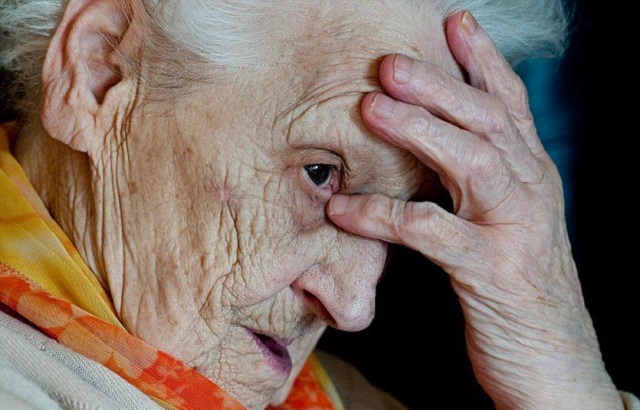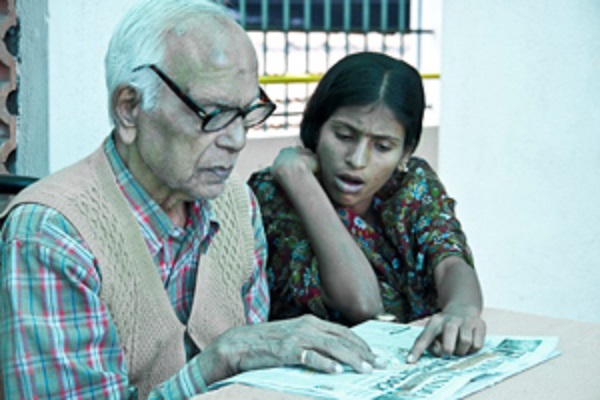A critical report on dementia’s and its spread throws out startling facts about why women are more affected than men.
by Alzheimer’s Disease International (ADI)
Across all regions of the world, dementia disproportionately affects women. More women than men develop dementia, and a large proportion of carers are women, in both informal and formal capacities. While the higher prevalence of dementia amongst women is noted in the research, there is little evidence of policy being put into place and actioned in response to this. In the few papers focussed on lower and middle-income countries (LMICs), there was often no governmental organisation or programmes to address the problems associated with dementia, either for the person with dementia or to support the caregiver.
Expectations are made in many countries that families will look after older relatives, including those with dementia. This expectation often extends to it being the women in the family who take on this direct caregiving role. There was often reluctance amongst women caregivers to access help from formal and informal support services, due to conflicts between cultural and family expectations or the ability and willingness to seek help on the part of the caregiver. In LMICs in particular it was seen to be important to ensure that community services were made more easily accessible to women with little or no education.
 Women will continue to provide care, whether this is due to societal expectations, or an individual wish to support members of their family and friends. Whatever their motivation, there needs to be adequate and appropriate information and support in place to enable these women to provide care, and feel cared for themselves.
Women will continue to provide care, whether this is due to societal expectations, or an individual wish to support members of their family and friends. Whatever their motivation, there needs to be adequate and appropriate information and support in place to enable these women to provide care, and feel cared for themselves.
The India story
Dementia is a public health issue that will become increasingly visible in LMICs as the population ages. All countries need to understand the current and predicted prevalence and acknowledge that dementia disproportionately affects women; the impact on women needs to be ascertained in individual countries, along with a review of the support available currently and what is needed to meet future needs.
As the population ages, the prevalence of dementia will increase, given that advanced age is the greatest risk factor for dementia (Alzheimer’s Association, 2014). The number of people globally estimated to be living with dementia in 2013 was 44.35 million. This is predicted to rise to 75.62 million in 2030 and 135.46 million in 2050. The rates of increase across different parts of the world is not uniform, with rates increasing in India, China and South Asian and Western Pacific regions at three times the rate of increase in high income countries.
In 2013, Alzheimer’s Disease International estimated that around 38 per cent of people with dementia were living in high income countries, and 62 per cent in low and middle income countries (LMICs); this is predicted to rise to 71 per cent in LMICs by 2050 if current trends continue. These figures highlight the need for all countries, in particular low and middle income countries, to develop plans to ensure the provision of appropriate health and social care to manage the increasing need of the ageing population.
Influencing factors
Many factors influence carer burden and strain across different countries, ethnicities and cultures. In a survey of 11 sites in middle income countries (Latin America, China and India) the factors leading to carer strain were found to be the primary stressors of behavioural and psychological symptoms of dementia (BPSD), dementia severity, the care needs of the care recipient and time spent caring.
Cutting back on paid work to undertake care was significantly associated with higher carer strain in most countries. No significant associations were found in chi-square analyses on demographic variables, dementia diagnosis, severity of dementia, medications prescribed or where the person with dementia lives which would account for these high levels of carer strain. Elsewhere, in Iran, factors increasing the risk of psychological morbidity in dementia carers included being a spouse, having an affected person at home, and living together.
The impact on finance is also significant in LMICs, where the fewer than half of the people with dementia received any kind of pension; this proportion was lower in India and Nigeria. However, some LMICs have adopted policies of non-contributory pensions as part of social welfare programme, or have wide access to healthcare services, addressing some of the problems faced by the older population. The majority of caregivers in the 10/66 Dementia Research Group study had to cut back on paid work, or stop working altogether, in order to care for the person with dementia, with no provision of any kind of state caregiver allowance. In Tanzania, with no state care available, it was suggested that provision of community day care for people with dementia, either by the state or religious organisations, would allow caregivers to undertake more “productive work”.
Read the entire report here.
(Pictures courtesy www.dailymail.co.uk, www.huffingtonpost.co.uk)



